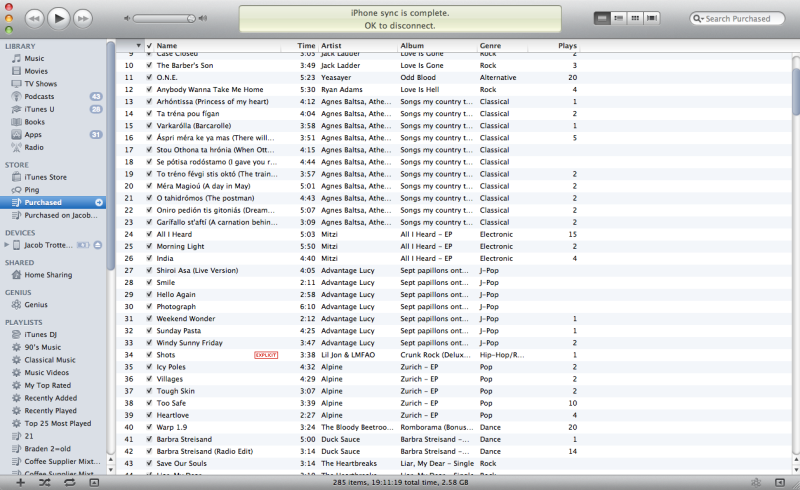Monday, March 28, 2011
Lies 2.0
Then in 2005, things got really serious. I got my first myspace page, which was pretty exciting.
Things continue to progress, and these days I can't imagine what I would do without my facebook page, which aids my social life in numerous ways (from being a simple communication tool to remembering my friends birthdays for me).
As peoples lives are continually becoming more and more intertwined with their online-presence we have to wonder though; are they really accurately representing themselves?
When people have such a great level of control over the information people can and can't see on their personal profiles, the chance for misleading information to surface increases exponentially (Hamelink 2006). But, is this such a big issue?
It is important to realise that being completely open with your personal information online is also probably not preferable.
Realistically, the truth probably lies somewhere in the middle... As long as we treat information gleaned from the Internet with a bit of caution, things will probably be alright.
References:
Hamelink, C. J. 2006. The Ethics of the Internet : Can We Cope With Lies and Deceit on The
Net? In: Ideologies of the Internet. New Jersey: Hampton Press Inc.
Thursday, March 17, 2011
Guilty Pleasures and Playlists
In my final year of high school, I developed a bit of a bad habit...
I'm still not sure if I'm proud of this, and every now and then I seem to slip back into it.
I've tried to shake it a few times, putting myself through various rehabilitation processes, but ultimately it keeps on coming back...
I admit it. I actually like pop music. Dirty, dirty pop music. Every inch of musical sensibility inside of me screams to stop listening, but I can't, no matter how much I try.
It comes in waves... some weeks I'll completely abstain. Taking nothing but my audiophile-esque i-Phone for the 2 hour train ride from the Sunshine Coast to Brisbane and back. But on the odd occasion, the old ipod classic (complete with my entire music library) comes out, and all hell breaks loose.
To give you a bit of an idea of my issues, here's a selection of my Itunes 'Purchased' playlist...

Jack Ladder, Yeasayer, Ryan Adams - I can work with that.
Agnes Baltsa - bit of a classic
Mitzi - Keep it local
Advantage Lucy - some relatively obscure J-Pop (Japanese Pop - for the less informed)
Then BAM! It hits you out of nowhere. Lil Jon & LMFAO... Really? Like... Really?
Yeah, really.
As I hear lately, an iTunes library is apparently an incriminating reflection of a persons phsycological state (Levy, 2006). Which has got me wondering, nay, worrying about what my personal library says about me.
Is it time to bite the bullet and purge our hard-drive of these aural fallacies, or should we ride it out, hoping no-one notices?
The choice is really up to you, but if you do choose to engage in some of life's more incriminating guilty pleasures, just make sure you steer clear of the 'L Train'.
References:
Levy, S. 2006. The perfect thing: How the iPod shuffles commerce, culture and coolness. New York: Simon & Schuster Paperbacks
Sunday, March 13, 2011
Social Media and Identity
With a never before seen level of prominence, Social media has, over (roughly) the last decade, become a fascinating means of observing and understanding peoples identities. The enormous role that it plays in peoples lives today provides new insight into both the ways people are connected, and the way they present themselves to the outside world.
So, what does it mean for us as avid participators and spectators of social networking?
Interestingly, some of the most important questions that have arisen from social media pertain to much older questions. Namely, how people identify and present themselves in relation to the world around them (Donath, Boyd 2004). Under this consideration, a remarkable metaphor arises. Goffman (1959), proposes that peoples identities are in-fact, performances, on a stage of sorts. Pearson (2009), extrapolates on the metaphor further, suggesting that there are front-stages and back-stages in our everyday life (which are symbolic of the nature of the various social encounters we have daily). She suggests that a significant amount of our true identity is lost in the new platform of online social transactions.
If it is true that our identities online “are represented by the language of (our) avatars” (Pearson 2009). We, as users of such platforms, must then recognise the limitations of this form of communication. By being aware of the possibility for abuse, we can truly benefit from these communication tools.
References:
Donath, J. and boyd, d. 2004. Public displays of connection. BT Technology Journal, volume 22 (4): 71-82.
Goffman, E. 1959. The presentation of self in everyday life. Garden City, N.Y.: Doubleday.
Pearson, E. 2009. All the World Wide Web’s a stage: the Performance of Identity in Online Social Networks. First Monday, volume 14, Number 3.